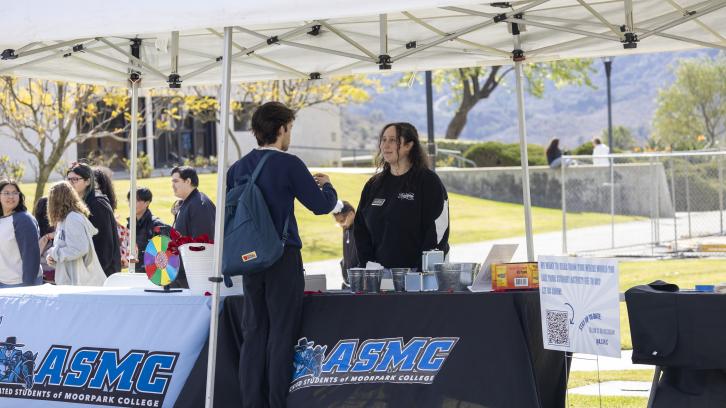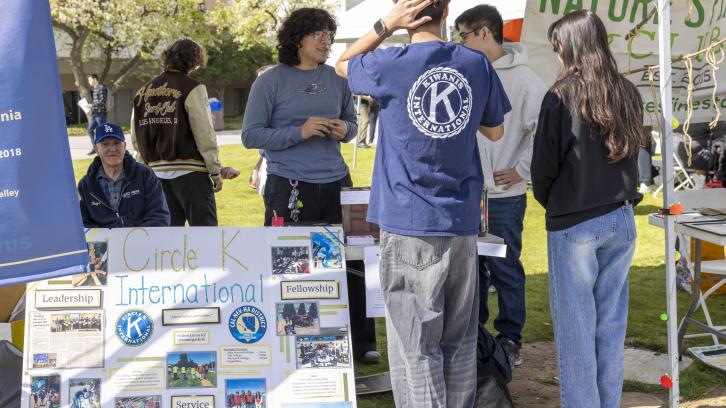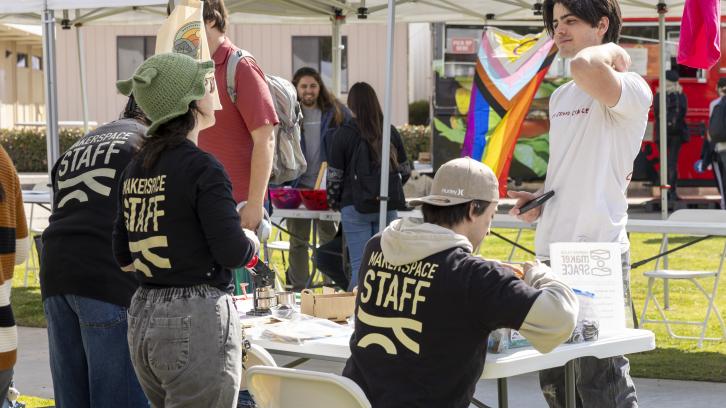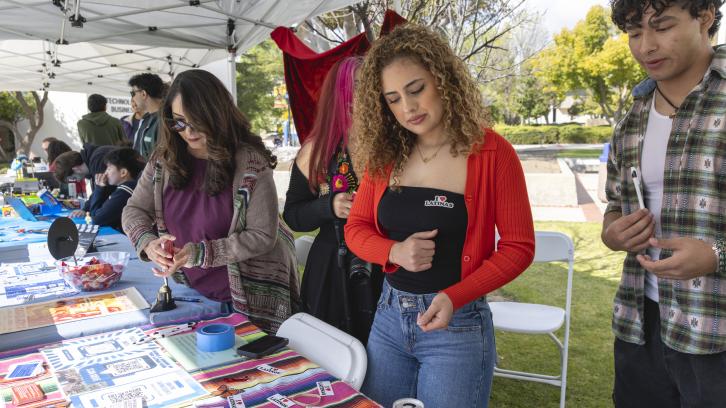Moorpark College has dozens of student-led groups with which you may get involved! Clubs and student organizations provide students with opportunities to engage with classmates, apply classroom concepts or principles to real-life situations, and undergo personal growth. Participating students gain valuable leadership experience while developing social and professional relationships.
Students are encouraged to reach out to a club president or advisor to learn about the club's upcoming meetings and activities for the semester. Also, new clubs form throughout the year, so be sure to check back for new opportunities!
Click here to view a full list of currently active student clubs and organizations.
Student clubs and organizations operate within Moorpark College and VCCCD policies and procedures, including Board Policy 5430 Clubs - Regulations and Administrative Procedure 5430 Clubs - Regulations.
Check out our list of formerly active student clubs that you can revive, or complete the following steps to create a club that suits your academic, cultural, or personal interests:
Step 1: Find your club officers.
Identify a minimum of four (4) currently enrolled MC students to serve as officers and complete the Student Club/Organization Rechartering or Creation Form:
- (Re)Chartering Form for Student Clubs and Organizations - electronic submissions* (*preferred method of renewal)
- (Re)Chartering Form for Student Clubs and Organizations - fillable PDF (another option for submitting officer information)
Step 2: Find your advisor(s).
Secure at least one Moorpark College faculty, staff, or administrator to serve as advisor for your club, and have that person/those people complete the Student Club/Organization Advisor Agreement:
- Advisor Agreement - electronic submission option (*preferred method of submission)
- Advisor Agreement - fillable PDF
Step 3. Draft your club's constitution & bylaws and submit them to ASMC.
Each student club and organization will develop governing documents that explain what the club will be about, how students can become officers, and other details about club operations. Feel free to use our template to guide you:
Step 4. Submit your club paperwork.
Once you have submitted the online forms, send in your club's Constitution & Bylaws to ASMCStudentOrgs@vcccd.edu, ASMCStandingRules@vcccd.edu, and krobinson@vcccd.edu.
Step 5. Attend an ASMC Board meeting for approval.
You will be invited to attend an upcoming ASMC Board meeting to discuss the club and its goals so that ASMC may formally approve your organization. You will be invited to a future ASMC meeting by the ASMC Director of Student Organizations, so be sure to check your email for next steps!
Please note that the ASMC Board does not meet regularly during summer term or winter or spring breaks. This may cause a delay in club/organization chartering approvals.
New Club FAQs
What is the deadline to create a new club?
The deadline to submit club creation forms for spring semester is April 1, 2025.
What happens after I submit my new club paperwork?
The ASMC Director of Student Organizations will work with the ASMC President to add your club to a future ASMC Board meeting so the Board members can learn more about your organization and decide whether or not to formally approve your club.
What are the benefits to creating a formal club?
Clubs that are officially recognized by the Associated Students Board of Directors receive additional benefits that general students don't, such as:
- the ability to reserve indoor and outdoor spaces on campus;
- the opportunity to request funding from the Associated Students Programming Committee to support club events, activities, and travel; and
- the chance to add club leadership involvement on academic transcripts, among other benefits.
What's the difference between a club and an organization?
- A student club is defined as a group of students with a common social, educational, social justice, religious or cultural purpose. Because the management of the club is intended to be a student learning experience, the day-to-day functions of the club are carried out by student members with oversight and mentorship from an advisor.
- An organization is a group of students whose central purpose or cause is linked closely to or affiliated with an external organization. Organizations may have additional chartering or renewal requirements beyond the College chartering requirements. Examples of organizations include honors societies, sports clubs, e-sports leagues, or politically affiliated groups.
There are dozens of benefits to joining a student organization! Here are a handful of reasons to get you inspired (adopted from Bentley University's PreparedU site):
-
You will gain practical experience in a safe environment. Participating in a student organization that is focused on your area of study will give you practice experience in that field. Many student organizations also provide opportunities to learn skills in project management and event planning, and you get to test these skills out in a safe environment where making mistakes is okay (and won't cost you your job!).
-
You will gain leadership experience while expanding your resume. Members and leaders of student organizations are often presented with opportunities to improve their public speaking, team management, and conflict resolution skills. And listing your participation in a student organization on your resume will show an employer that you're hard working and can successfully juggle multiple responsibilities. If you do a good job, you might also be able to list your club's faculty advisor as a future internship or job reference too.
-
You will develop soft skills. Soft skills, also know as "people skills," pertain to your ability to effectively collaborate with others. Participating in student organizations can refine your communication and time management skills while helping you develop a good work ethic and emotional intelligence. Participating in student organizations also presents the opportunity to engage with diverse groups of people and can teach you about different cultural backgrounds.
-
You will learn a lot about yourself - and have fun in the process! Student organizations present opportunities for personal growth by providing the chance for you to identify your interests, goals, and strengths. And, student organizations offer opportunities to meet new people and make new friends along the way.

ASMC Director of Student Organizations Nora Barakat talks to a student during Club Rush 2025.

Circle K members during Club Rush 2025.

MakerSpace staff talk to a student during Club Rush 2025.

Students smile at the camera while wearing funny heart headbands at the combination Club Rush/Valentine's Day event.



